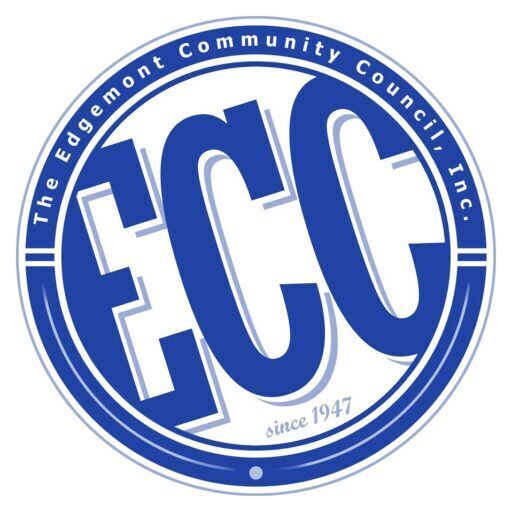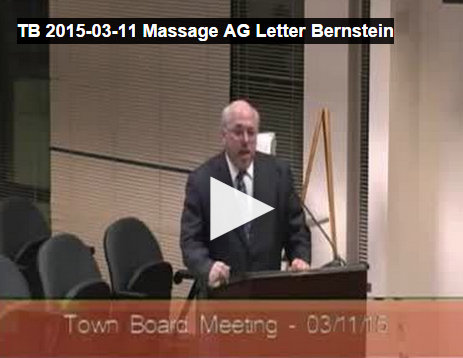The Greenburgh Town Board is apparently continuing to do everything it can to kill the law proposed by the Edgemont Community Council to give police the tools it needs to close houses of prostitution fronting as “massage parlors.”
The town board today effectively rejected an offer from ECC president and lawyer Bob Bernstein to explain to them why the law he drafted for the town more than three months ago is not preempted by state education laws requiring that massage therapists be licensed. Mr. Bernstein reiterated that offer at last week’s town board meeting when Mr. Feiner asked him to draft a new request for an opinion from the state attorney general after the first request, which Mr. Bernstein had criticized as false and misleading, had been rejected as procedurally improper.
Instead, Town Supervisor Paul Feiner announced today that the board will seek a second opinion from the Association of Towns of the State of New York by holding a “conference call” Tuesday with the group’s associate general counsel Kathleen Hodgdon.
Mr. Feiner offered to let Mr. Bernstein participate in the call, but refused to grant his request that he be given the materials that the town attorney’s office had provided to Ms. Hodgdon. Mr. Bernstein said he would not participate in the call without such information.
[wpvideo ZoziZmwp]
The Association of Towns provided an opinion in early December — a month before the ECC legislation was even drafted — suggesting that towns in New York are preempted from enacting laws regulating massage parlors. The opinion was in response to a request from Town Attorney Tim Lewis, who opposes enacting such laws, who appears to have said the Town was considering a measure that would give the building inspector certain unspecified discretion to decide whether to issue permits for massage parlors to open.
In early December, Mr. Feiner forwarded to Mr. Bernstein an email from the Association of Towns with its brief “opinion.”
Mr. Bernstein immediately responded by explaining that because towns have the legal authority in New York to enact laws to prevent prostitution, they have the legal authority to enact laws to prevent houses of prostitution from fronting as massage parlors and that nothing in the state education law requiring that massage therapists have a certain amount of education and training in order to be licensed says otherwise.
Mr. Bernstein added that the Association of Towns did not consider state law giving towns this authority; nor did they consider that the doctrine of preemption does not apply when the state expressly permits local governments to enact certain legislation, as it does here.
Mr. Feiner said he agreed with Mr. Bernstein and, after Mr. Lewis refused to do so, Mr. Bernstein in turn drafted the legislation.
But when it came time for Mr. Feiner to introduce the measure, the town attorney and town clerk both balked, and the measure was put aside.
To buy time, Mr. Feiner then said asked state assemblywoman Amy Paulin (D-Scarsdale), who is a leading authority in the state on human trafficking, whether someone on her staff or in the state assembly could give their view on whether the proposed law was lawful.
Mr. Bernstein suggested to Mr. Feiner that by approaching Ms. Paulin, he was just “shopping” for new legal opinions while needlessly delaying action on the measure — and Mr. Bernstein drafted his own legal opinion.
In response, Mr. Feiner notified Ms. Paulin that he was withdrawing his request, that he had received an opinion from Mr. Bernstein that he agreed with (and had enclosed for Ms. Paulin to review), and that based on that opinion from Mr. Bernstein, he would “push” for the legislation.
But instead of doing so, Mr. Feiner and all other members of the town board then went along with the town attorney’s back door attempt through the planning board to get yet another legal opinion — this time from the state attorney general.
That effort failed ten days ago when the state attorney general said it would not entertain requests for a legal opinion from a town planning board — since only the town board has legal authority to enact such legislation.
Meanwhile, the Planning Board announced that if the Town would not send a letter of its own to the attorney general, the planning board would not consider the legislation. Without a report from the planning board, the Town cannot by law hold its own public hearing on the measure, thus preventing it from being adopted.
Under the Greenburgh Town Code, the Planning Board is required to render a report and recommendation on any proposed changes to the Town’s zoning ordinance within 60 days of the referral. However, the planning board may request a total of only two 30-day extensions. Assuming the Town Board grants these requests, the Planning Board can (with the town board’s assistance) hold up consideration of the law for a total of 120 days.
Because the law was referred to the Planning Board on January 20, the Town Board could conceivably schedule a public hearing on the measure after May 20, or after the 120-day period has elapsed.
But given the Town Board’s desire to continue shopping for legal opinions, the likelihood that the Town Board will ever schedule a public hearing on the measure is looking more and more remote.
The planning board has meanwhile placed the massage law on its agenda for a meeting this Wednesday. The matter is to be dealt with in “work session” and no members are of the public are permitted to participate.
[wpvideo GQRyZuxK]
At the town board meeting last week, Fran McLaughlin, the chair of the planning board, said the reason the planning board was insisting on a legal opinion from the attorney general’s office before considering the legislation was that there was a recent court of appeals ruling which found a Nassau County law concerning the residency of sex offenders to be preempted by a state law on that subject.
Because Ms. McLaughlin does not permit the public to participate in planning board discussions of proposed legislation, no one from the public can explain to Ms. McLaughlin, who is not a lawyer and gets her legal advice from the town attorney, the difference between the state sex offender statute at issue in the Nassau County case and the state education law governing the licensing of massage therapists in this case.

